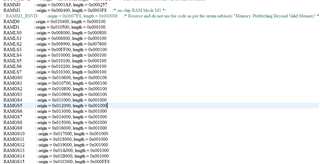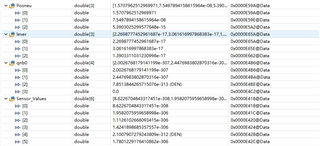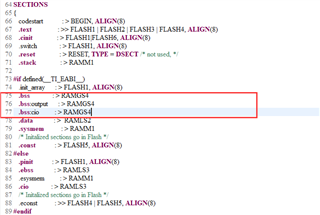Hello Engineer, I have recently been using 28388D for data processing, due to the large number of data calculations I have been doing in CPU2, I have run out of RAMLSx in CPU2, so I have used RAMGS0~RAMGS4 and allocated them in CPU1 using MemCfg_setGSRAMControllerSel function as shown below:

My CMD file is as follows:

However, after I burned the program, I found some garbage data assigned to the initial values of some global variables in the array, as shown below, is there a problem with my memory allocation function?

Thank you very much!
Looking forward to your reply!











